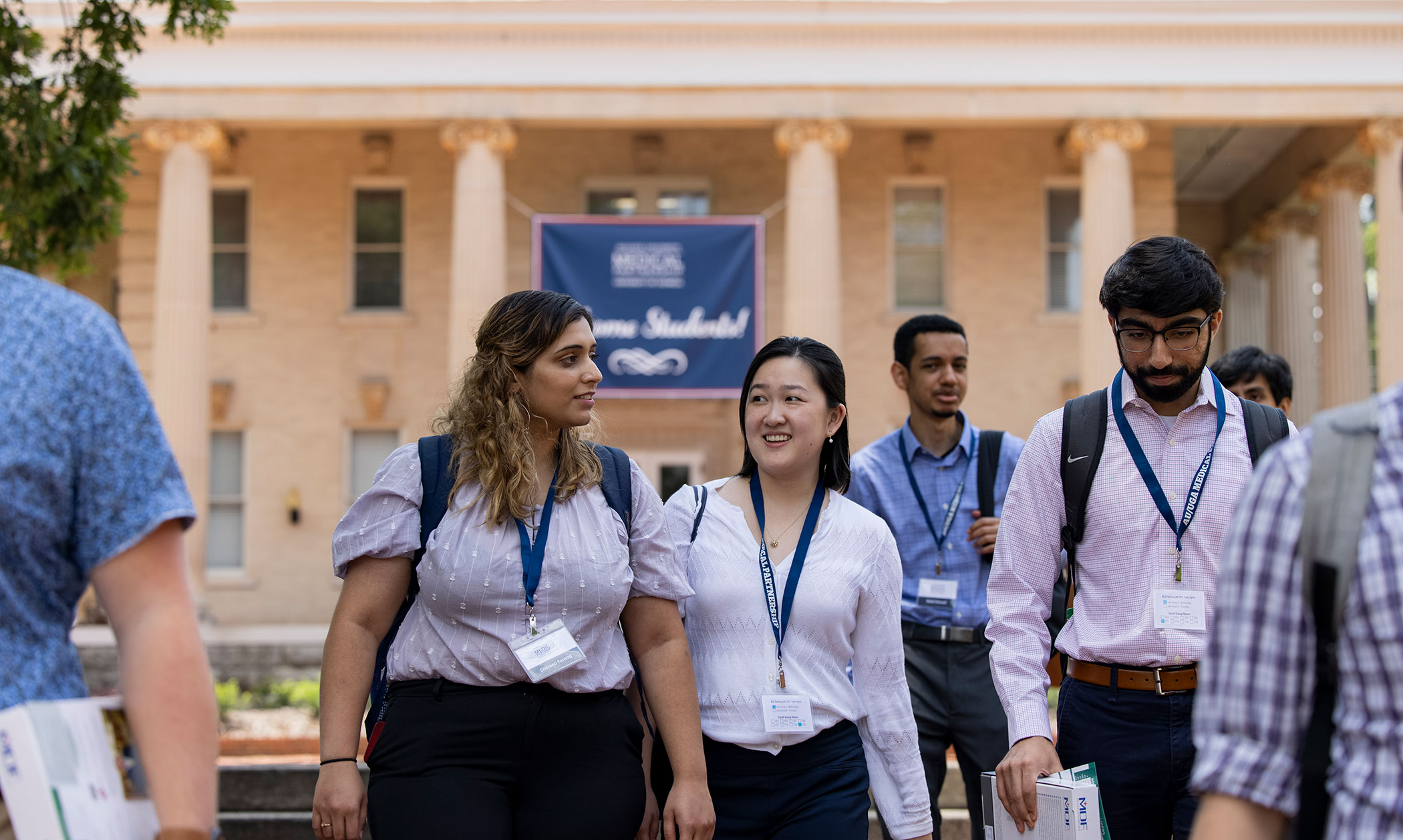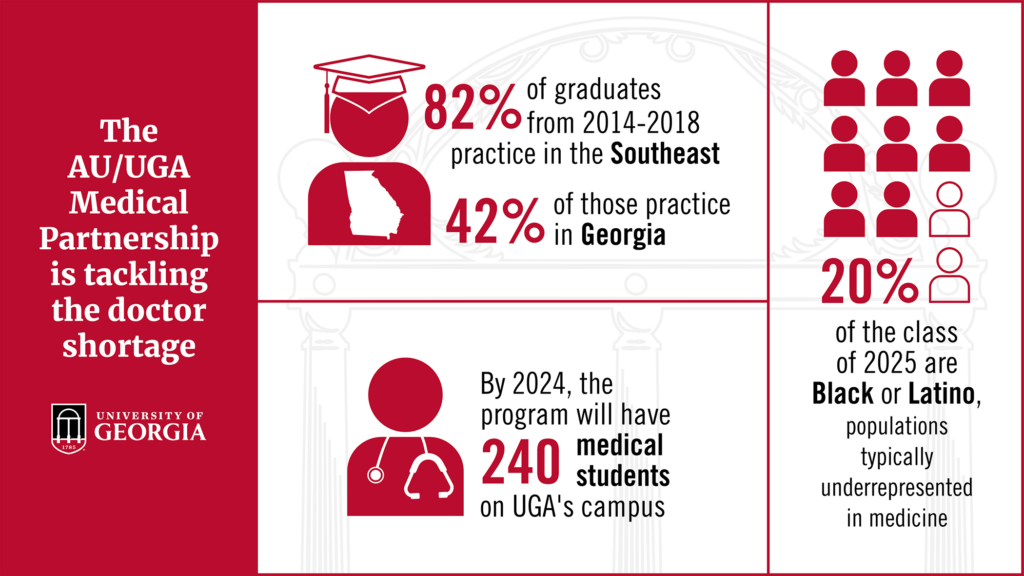The United States needs more doctors. By 2034, the country could see a doctor shortage of up to 124,000 physicians, in both primary and specialty care, according to the Association of American Medical Colleges
This problem, brought on by a growing and aging population as well as an aging physician workforce nearing retirement age, is being tackled by the Augusta University/University of Georgia Medical Partnership. Known for its small class sizes, case-based active learning and tightly knit community, the program has expanded in recent years. And most of the graduates are staying in the Southeast to practice.
“The Medical Partnership is an amazing place for students to learn the science and art of medicine,” said Dr. Shelley Nuss, campus dean. “The smaller campus size with dedicated, supportive and passionate medical educators, creates an unparalleled experience for our medical students. The Medical Partnership continues to have a tremendous and positive impact on our local communities.”
In 2022, the Medical Partnership welcomed its largest class ever, and over the next three years, the program will reach its goal of having 240 students on campus by fall 2024.
Out of the graduates from 2014 to 2018, 82% are practicing in the Southeast United States, and 42% of those are practicing in Georgia.
This first-year class has an even number of men and women, and a fifth of the students are from diverse backgrounds, including Black and Hispanic students, populations typically underrepresented in medicine. Georgia, however, has the highest percentage of practicing Black doctors of any state in the country, at 16.3%.
“A diverse physician workforce, as well as a physician workforce who is trained to meet the needs of diverse communities, is essential to improving the health care outcomes for the citizens of the state of Georgia, as well as across the U.S.,” said Dr. Robert McClowry, interim campus associate dean for student affairs, diversity and inclusion at the Medical Partnership. “There is robust data showing that meeting the cultural and societal needs of patients improves their health outcomes – oftentimes more than any prescription or procedure could. We are proud that our students at the AU/UGA Medical Partnership are trained to meet these needs head-on through the training they received here.”
Addressing community health care needs
In addition to training doctors to address a physician shortage, students at the Medical Partnership conduct important work in the community.
In 2020, the Athens Free Clinic expanded to increase access to care in the Athens area.
The clinic partnered with the Georgia Northeast Department of Health to provide COVID-19 testing to vulnerable populations and local homeless shelters. Between April 2020 and March 2021, 3,500 tests were administered.
This partnership also enabled students to administer close to 4,000 COVID-19 vaccines to those in need. Since March 2018, the Mobile Clinic has had over 900 patient visits valued at nearly $210,000.



